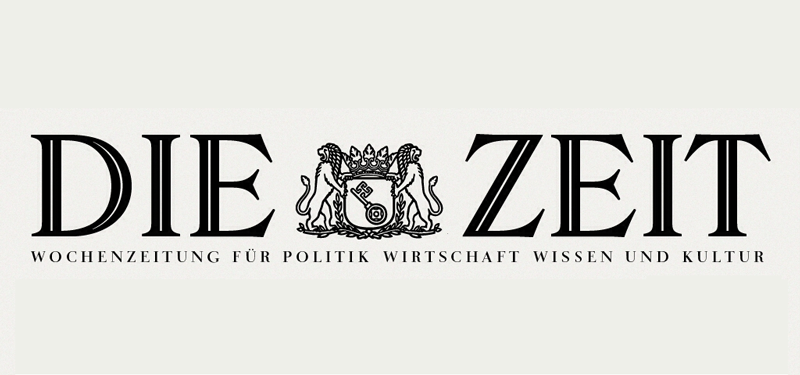BrainStore in the Newspaper "Die Zeit"
Die Zeit, one of the most renowned German weekly newspapers

Ideas straight off the shelf
Your boss doesn't know you? Why not get a few ideas from the BrainStore?
BY ERIC BREITINGER
If Monsieur Wagner wasn't a little courageous sometimes, he probably would never have entered the BrainStore in Biel, Switzerland, to order a few good ideas from a complete stranger in the sales department. After all, Monsieur Wagner has a problem: His boss doesn't notice him, not really anyway. Although Monsieur Wagner, a trained photographer, has been working at the Lausanne Photomuseum Elysée for eight months, his boss only knows his first name: Yves. No problem for the idea salesman: "You can come back in an hour."
The logo of the BrainStore is a human brain. The store sells what humanity so desperately needs: freshly developed ideas. A world premiere, say the operators. Since November, peppy ideas for a christening party have been available here after just a quarter of an hour's wait and for 9.90 francs. And anyone who needs it can get a complete concept for transforming apple juice into a cult drink. That takes a few days longer, and the sum on the check must be at least five figures.
Whether small or large - all ideas are produced right next door, by the 20 employees of the Ideas Factory. Average age: 23. The company, Dactis AG, was founded by 31-year-old Markus Mettler nine years ago, when he had had enough of economic theories after a few semesters.
The business idea was simple, but a blow to anyone who believes in the originality of human brainstorms: Mettler claims that good ideas can be mass-produced, just like good shoes. All that is needed, he says, are the right techniques and people who know when to use which tool.
For example, in the development of a new product. Most of the time, the idea creators start by sounding out the market opportunities with a survey. They often also resort to trend scouting: freelancers record competing brands. In this way, they try to find out whether the product to be launched really has enough new features. The third tool can be used equally well for private clients: Young people develop raw ideas in an empty room, the "creative lab," through role-playing or brainstorming.
Sometimes they meet with clients for two days at an alpine hut. If necessary, Mettler says, his company can mobilize 500 young people from all over Switzerland. The employees in the think tank knock the raw ideas down to see if they can be implemented and then refine them. In the end, the ideas are ready to be put into practice - or they still have to prove themselves in the idea test.
In the beginning, Dactis AG worked on school newspapers. Today, it makes its living by selling ideas to gray-haired company managers who want to give their products a young look but don't dare ask their children for advice. Nestlé managers, for example, call to freshen up the sticky image of the "Schoggi-Stengeli". The Zurich chips manufacturer Zweifel buys a few dozen hours of creativity to give a new potato snack a trendy name, a hip packaging, in short: a super appearance.
Beverage managers thirst for a little cheekiness for Coca-Cola light, the PR people at Johnson & Johnson for a shot of youthfulness for their panty liner advertising.
The customer list now numbers 200 company names. Sales soared to two million Swiss francs in 1997, a third more than the year before. And since recently, the idea factory has also been serving private individuals: in the BrainStore. For example, for the 80-year-old neighbor who is looking for a new occupation for her newly retired 86-year-old husband.
The salesman turns on the projector, reads aloud, "Trois idées pour monsieur Yves Wagner." For forty-five minutes, five young people in the creative lab had struggled to find solutions. At first, they fabulated away until the moderator directed them to the topic of puzzles and recorded their associations on a board. Wagner should enlarge a picture, the salesperson now advises, cut it up and send the puzzle pieces to the boss one by one. "My own picture?" asks Wagner incredulously. "Our second idea: send your boss twenty photos of people, some acquaintances, some strangers, including one of you. On the back write: 'Who is Yves Wagner?'"
The unhappy Monsieur Wagner no longer looks so unhappy.
As a third solution, BrainStore advises him to apply for his own job, with references and photo. "That's got humor." Wagner smiles. "I like the application, and the puzzle, too. Maybe it can be combined." He puts sixty francs on the table. And walks out, a folder with his ideas under his arm. It's quite possible that his boss will soon get some strange mail.